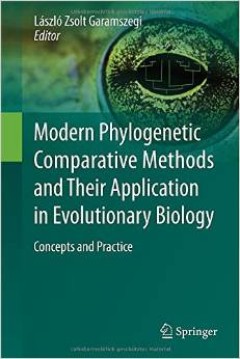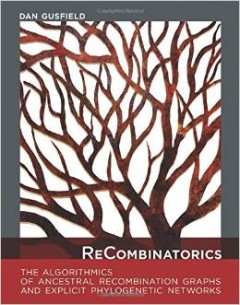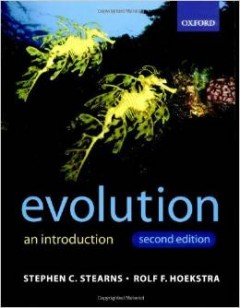Filter by

Modern phylogenetic comparative methods and their application in evolutionary…
Phylogenetic comparative approaches are powerful analytical tools for making evolutionary inferences from interspecific data and phylogenies. The phylogenetic toolkit available to evolutionary biologists is currently growing at an incredible speed, but most methodological papers are published in the specialized statistical literature and many are incomprehensible for the user community. This te…
- Edition
- -
- ISBN/ISSN
- 9783662435496
- Collation
- 552 p. : ill. : ind. ; 24 cm
- Series Title
- -
- Call Number
- 575 Mod

Recombinatorics : the algorithmics of ancestral recombination graphs and expl…
In this book, Dan Gusfield examines combinatorial algorithms to construct genealogical and exact phylogenetic networks, particularly ancestral recombination graphs (ARGs). The algorithms produce networks (or information about networks) that serve as hypotheses about the true genealogical history of observed biological sequences and can be applied to practical biological problems. Phylogeneti…
- Edition
- -
- ISBN/ISSN
- 9780262027526
- Collation
- xvii, 580 p. : ill. : ind. ; 24 cm.
- Series Title
- -
- Call Number
- 572.877 Gus r

Evolution : an introduction
The second edition of Evolution introduces the basic mechanisms of microevolution, natural selection, and macroevolutionary processes such as speciation and extinction. It also examines key events in evolution throughout the geological record and discusses coevolution and evolutionary medicine. In addition, the text discusses unsolved problems and looks ahead to future developments in this dyna…
- Edition
- 2nd
- ISBN/ISSN
- 9780199255634
- Collation
- xx, 575 p. : ill. : ind. ; 25 cm.
- Series Title
- -
- Call Number
- 576.8 Ste e

Animal evolution : interrelationships of the living phyla
Animal Evolution provides a comprehensive analysis of the evolutionary interrelationships and myriad diversity of the Animal Kingdom. It reviews the classical, morphological information from structure and embryology, as well as the new data gained from studies using immune stainings of nerves and muscles and blastomere markings which makes it possible to follow the fate of single blastomeres al…
- Edition
- 3rd edition
- ISBN/ISSN
- 9780199606030
- Collation
- x, 402 p. : ill. : ind. ; 26 cm.
- Series Title
- -
- Call Number
- 591.38 Nie a
 Computer Science, Information & General Works
Computer Science, Information & General Works  Philosophy & Psychology
Philosophy & Psychology  Religion
Religion  Social Sciences
Social Sciences  Language
Language  Pure Science
Pure Science  Applied Sciences
Applied Sciences  Art & Recreation
Art & Recreation  Literature
Literature  History & Geography
History & Geography